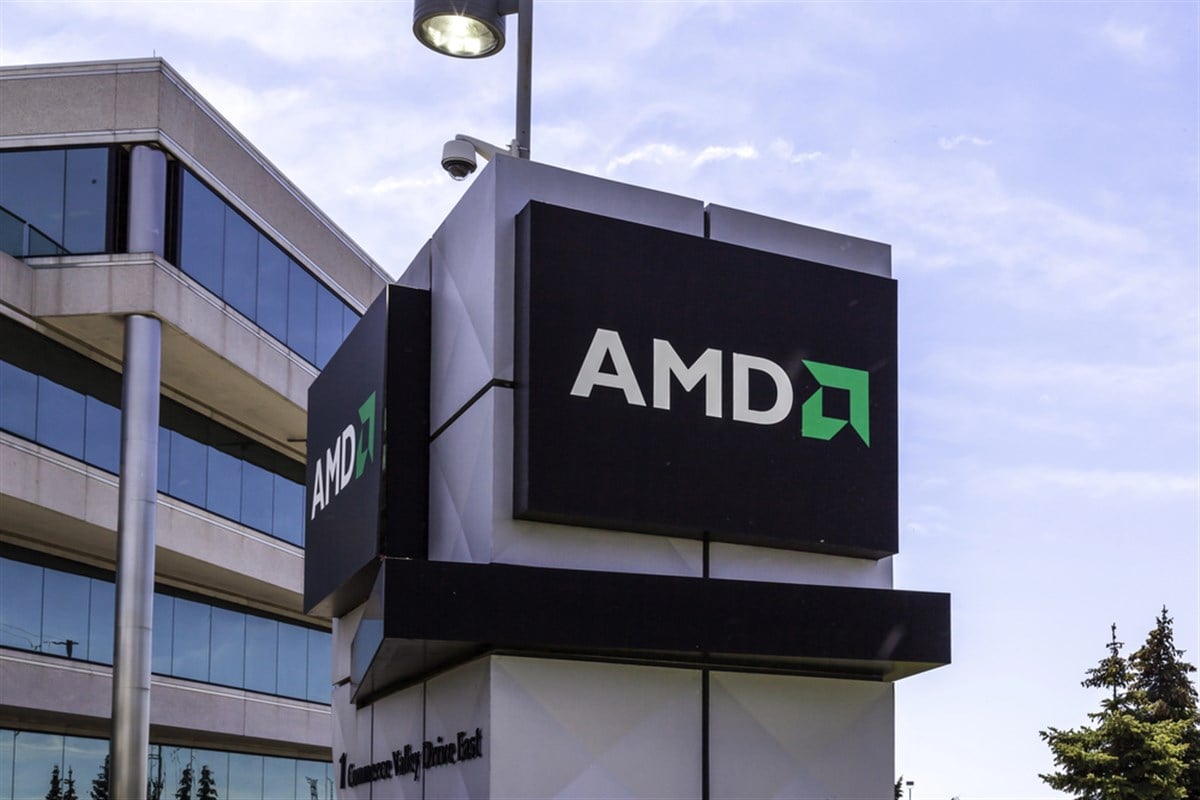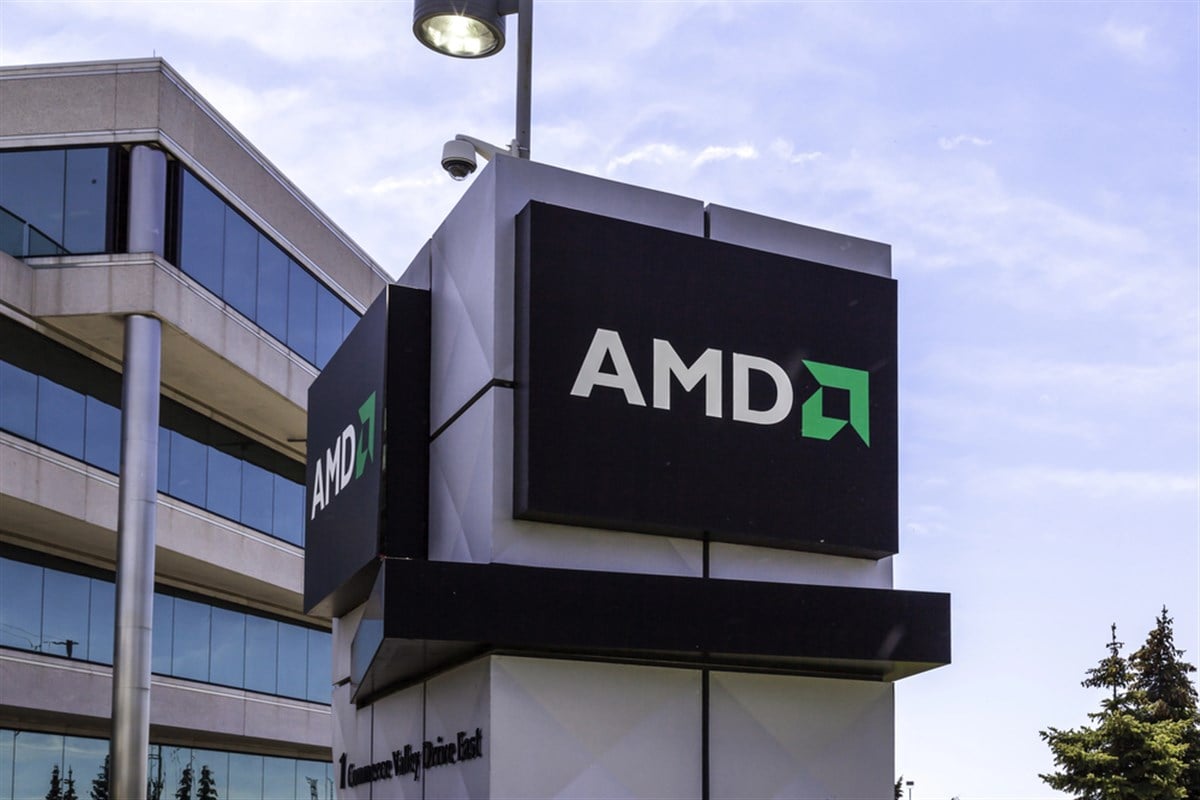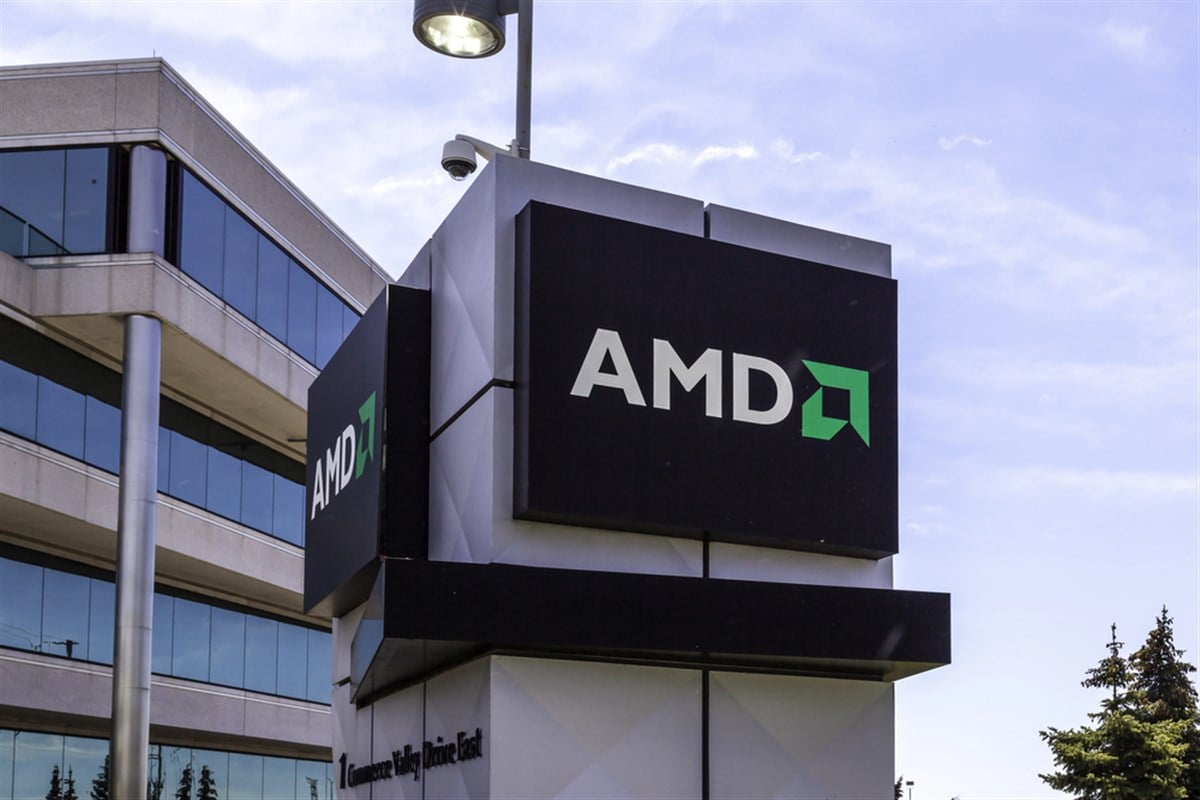Marjorie Taylor Invests in Advanced Micro Devices, Inc.

- Greene's investment in AMD aligns with the company's participation in a high-profile tech conference, highlighting its industry prominence.
- AMD's technological advancements and strategic partnerships, especially in AI technology with Microsoft, underscore its competitive edge in the computing market.
- Political interest in AMD, with investments from U.S. politicians, signals growing confidence in the company's market potential and technological contributions.
On May 21, 2024, Marjorie Taylor Mrs. Greene, associated with the office of Marjorie Taylor Mrs. Greene, made a notable investment in Advanced Micro Devices, Inc. (NASDAQ:AMD) by purchasing shares valued between $1,001 and $15,000. This transaction coincided with AMD's participation in the J.P. Morgan 52nd Annual Global Technology, Media, and Communications Conference, an event that underscores the company's prominence in the tech industry. AMD's engagement in such high-profile industry gatherings, along with its innovative contributions to AI technology, positions it as a key player in the competitive computing market.
AMD's representation at the conference by Jean Hu, the Executive Vice President & Chief Financial Officer, highlighted the company's strategic direction and technological advancements. This event, covered by Harlan Sur from JPMorgan, provided a platform for AMD to showcase its latest achievements, including the powering of Microsoft Azure's OpenAI Service workloads through Azure ND MI300X V5 virtual machines. This development, announced at Microsoft Build, emphasizes AMD's role in advancing AI technology and its collaboration with Microsoft, offering significant performance and efficiency for AI workloads.
The purchase of AMD shares by a political figure such as Marjorie Taylor Mrs. Greene draws attention to the company's stock, which has been actively bought by U.S. politicians, as reported by The Motley Fool. Politicians, including Michael McCaul, Josh Gottheimer, and Markwayne Mullin, have collectively invested approximately $345,000 in AMD stock since December, showcasing a strong interest in the company amidst its challenges and competition in the tech sector. This political buying activity, juxtaposed with AMD's market presence and technological contributions, suggests a growing confidence in the company's potential.
Despite facing a competitive market and reporting less than stellar results in the first quarter, AMD's strategic initiatives, such as its partnership with Microsoft and the introduction of Azure ND MI300X V5 VMs, demonstrate its commitment to innovation and market leadership. The company's broad market presence, spanning data centers, PCs, and embedded processors, along with the significant investment by politicians, positions AMD as a noteworthy investment opportunity.
The current stock price of AMD at $164.66, experiencing a slight decrease, reflects the market's short-term fluctuations. However, the company's strong market capitalization of about $266.14 billion and its active trading volume on the NASDAQ exchange highlight its substantial footprint in the technology sector. Investors and market watchers are closely monitoring AMD's performance and strategic moves, considering the potential implications of political investments and technological advancements on its future growth and stock valuation.
| Symbol | Price | %chg |
|---|---|---|
| AMD.BA | 34160 | 0 |
| 000660.KS | 580000 | 0 |
| LRCX.BA | 4172.5 | 0 |
| TXN.BA | 46880 | 0 |

Advanced Micro Devices, Inc. (NASDAQ:AMD) Maintains Strong Position Despite Market Fluctuations
- UBS maintains a "Buy" rating for AMD, raising its price target to $300.
- AMD reports a significant top-line beat and a record free cash flow of $1.53 billion, a 208% increase year over year.
- Despite surpassing Wall Street's expectations, broader market concerns and bearish positions by notable investors have impacted AMD's stock performance.
Advanced Micro Devices, Inc. (NASDAQ:AMD) is a leading semiconductor company known for its high-performance computing, graphics, and visualization technologies. Competing with giants like Intel and Nvidia, AMD has carved a niche in the tech industry with its innovative products. On November 5, 2025, UBS maintained its "Buy" rating for AMD, with the stock trading at $250.05, and raised its price target to $300, as reported by StreetInsider.
Despite a strong third-quarter performance in 2025, AMD's shares fell by 3.9% in after-hours trading. The company reported revenue and adjusted earnings per share (EPS) that surpassed Wall Street's expectations, with a significant top-line beat. AMD also achieved a record free cash flow of $1.53 billion, marking a 208% increase year over year.
The company's guidance for fourth-quarter revenue exceeded analyst consensus estimates, showcasing its robust financial health. However, broader market concerns about high valuations in the AI sector contributed to the stock's decline. Hedge fund manager Michael Burry's bearish positions on AI-focused companies like Nvidia and Palantir Technologies likely influenced AMD's stock performance.
AMD's current stock price is $250.05, reflecting a decrease of 3.70% or $9.60. The stock has fluctuated between a low of $247.39 and a high of $257.38 today. Over the past year, AMD's stock has reached a high of $267.08 and a low of $76.48, with a market capitalization of approximately $405.79 billion. Today's trading volume for AMD is 53,013,839 shares on the NASDAQ exchange.

Jefferies Upgrades Advanced Micro Devices (NASDAQ:AMD) to "Positive"
- Jefferies upgraded Advanced Micro Devices (NASDAQ:AMD) to a "Positive" rating due to a "multigenerational" agreement with OpenAI, valuing AMD's stock at $203.71.
- AMD's partnership with OpenAI involves using AMD chips for AI software, potentially shaping the future of computing and AI hardware space.
- Following the announcement, AMD's stock surged by 30%, with analysts predicting accelerated growth and a potential valuation of $1 trillion.
On October 6, 2025, Jefferies upgraded Advanced Micro Devices (NASDAQ:AMD) to a "Positive" rating. This decision was influenced by AMD's "multigenerational" agreement with OpenAI. At the time, AMD's stock was valued at $203.71. This partnership is a significant milestone for AMD, a leading player in the semiconductor industry, known for its innovative processors and graphics cards.
AMD's collaboration with OpenAI involves the use of AMD chips to power OpenAI's artificial intelligence software. This strategic alliance, as highlighted by AMD CEO Lisa Su and OpenAI President Greg Brockman, is mutually beneficial. The partnership was announced on 'The Claman Countdown,' emphasizing AMD's growing influence in AI and semiconductors, potentially shaping the future of computing.
Following the announcement, AMD's stock surged by 30%, as reported by Seeking Alpha. OpenAI plans to build a 1-gigawatt data center using AMD's MI45 chips, set to begin operations in 2026. This deal, valued at up to $300 billion, includes warrants for OpenAI to purchase 160 million AMD shares, potentially representing 10% of the company.
Analysts have reiterated a Strong Buy rating for AMD, predicting accelerated growth that could lead to a $1 trillion valuation. The projections include increased data center revenue targets and a compound annual growth rate (CAGR) of 25%. This reflects the market's confidence in AMD's strategic direction and its potential in the AI hardware space.
AMD's stock, trading on the NASDAQ, has seen a significant increase of 23.71%, with a change of $39.04. The stock fluctuated between $203.03 and $226.56, marking its highest point in the past year. With a market capitalization of approximately $330.59 billion and a trading volume of 247.32 million shares, AMD is well-positioned for future growth.

Advanced Micro Devices, Inc. (NASDAQ: AMD) Sees Promising Growth Amid New Developments
- Price Target Update: Suji Desilva from Roth Capital sets a new price target for NASDAQ:AMD at $250, indicating a potential increase of about 20%.
- Partnership with OpenAI: AMD's collaboration with OpenAI drives investor optimism, contributing to a stock price surge of over 28.69%.
- Historical Resistance: Despite the current rally, AMD has faced resistance at the $186 mark, suggesting potential future challenges in maintaining upward momentum.
Advanced Micro Devices, Inc. (NASDAQ: AMD) is a leading player in the semiconductor industry, known for its innovative processors and graphics technologies. Competing with giants like Intel and NVIDIA, AMD has carved out a significant market share with its Ryzen and Radeon product lines. The company continues to push boundaries in computing and graphics, making it a favorite among tech enthusiasts and investors alike.
On October 6, 2025, Suji Desilva from Roth Capital set a new price target for AMD at $250. At the time, AMD's stock was priced at $208.34. This target suggests a potential increase of about 20%. The announcement coincided with a surge in AMD's stock price, reaching $211.92, following a new partnership with OpenAI, as highlighted by Benzinga.
The collaboration with OpenAI is viewed as a promising development, driving investor optimism. AMD's stock price has seen an impressive increase of over 28.69%, reflecting the market's positive response. However, there is speculation that this rally might soon pause or reverse, as stock rallies often face resistance at previous peak levels.
Historically, AMD has faced resistance at the $186 mark, a peak reached in July and August 2024. The stock reversed and trended downward after hitting this level. Currently, AMD's stock is priced at $208.50, showing a significant increase of 26.62% with a change of $43.83. The stock has fluctuated between a low of $205.74 and a high of $226.71 today.
Over the past year, AMD's stock has reached a high of $226.56 and a low of $76.48. The company boasts a substantial market capitalization of approximately $338.36 billion. Today's trading volume for AMD is 190.8 million shares, indicating strong investor interest and activity in the market.

Advanced Micro Devices, Inc. (NASDAQ:AMD) Maintains "Hold" Rating Amidst AI Chip Developments
- Citigroup maintains a "Hold" rating for AMD as the company aims for a $1 trillion valuation with strategic AI advancements.
- AMD's MI350 series challenges Nvidia's dominance in the AI chip market, with HSBC raising its price target to $200.
- The company's financial performance remains strong, with key factors including revenue from MI300 and data centers, and strategic partnerships bolstering its AI ecosystem.
On July 14, 2025, Citigroup maintained its "Hold" rating for Advanced Micro Devices, Inc. (NASDAQ:AMD), with the stock priced at $146.24. AMD is a leading player in the semiconductor industry, known for its innovative processors and graphics cards. The company is strategically positioning itself to capitalize on advancements in artificial intelligence (AI), aiming for a $1 trillion valuation within five years. This ambition is driven by new product introductions and strategic realignments.
AMD's MI350 series is making waves in the AI chip market, challenging Nvidia's dominance. HSBC has responded by raising its price target for AMD to $200, reflecting confidence in AMD's competitive edge. The MI350 series, comparable to Nvidia's Blackwell chips, is part of AMD's strategy to close the valuation gap with Nvidia, which recently hit a $4 trillion valuation. AMD's upcoming MI400 chips, expected next year, are anticipated to compete with Nvidia's next-generation Vera Rubin platform.
The company's financial performance is robust, with increasing revenue and net income supporting its growth potential. Key factors influencing AMD's second-quarter earnings include revenue from MI300 and data centers, progress in mergers and acquisitions integration, and the outlook on gross margins. These elements are crucial as AMD seeks to enhance its market position and mitigate downside risks. Strategic partnerships with major players like OpenAI, Microsoft, and Meta further strengthen AMD's AI ecosystem and expand its market opportunities.
AMD's stock experienced a notable increase following positive analyst assessments of its latest AI chips. The stock's breakout from a flag pattern during Thursday's trading session, with the highest trading volume in over a week, suggests a potential continuation of its upward trend. Investors should monitor key price levels, with resistance expected around $175 and $215, and support levels near $135 and $115.
As of the latest trading session, AMD's stock price is $146.24, reflecting a slight decrease of $0.18 or approximately -0.12%. The stock has fluctuated between a low of $141.91 and a high of $147.56 today. Over the past year, AMD's stock has reached a high of $185.50 and a low of $76.48. The company's market capitalization is approximately $237.11 billion, with a trading volume of 41.83 million shares.

HSBC Upgrades AMD, Shares Gain 4%
HSBC upgraded Advanced Micro Devices (NASDAQ:AMD) to Buy from Hold, setting a new price target of $200 as optimism builds around the company’s AI product roadmap and revenue potential. As a result, the company’s shares rose more than 4% today.
The firm sees a significant upside in AMD’s FY2026 AI revenue, driven by stronger-than-expected pricing for its newly launched MI350 series chips.
Back in January, HSBC had flagged concerns over AMD’s competitiveness in the AI GPU space, but recent developments have flipped that view. The latest forecast now anticipates $15.1 billion in AI revenue for FY2026—roughly 57% above the current market consensus of $9.6 billion. That sharp revision is based on AMD commanding a higher pricing premium than initially expected.
Further boosting confidence is the upcoming MI400 rack architecture, set to debut in 2026. While still early to model financial impact, HSBC believes the long-term potential could further bolster AMD’s AI positioning.
Despite a recent 14% rally in AMD shares following its AI Day in June, HSBC argues that the market has yet to fully price in the coming wave of AI-driven growth. The firm expects this momentum to drive a broader re-rating for the stock, with significant room for upside from current levels.

Advanced Micro Devices Inc (NASDAQ:AMD) Bullish Forecast
Advanced Micro Devices Inc (NASDAQ:AMD) is a prominent player in the semiconductor industry, known for its innovative processors and graphics cards. Competing with giants like Nvidia, AMD has carved a niche in the market with its cutting-edge technology. Recently, HSBC analyst Frank Lee set a price target of $200 for AMD, suggesting a potential 38.77% increase from its current price of $144.12.
The optimism surrounding AMD is largely due to its promising AI chip pipeline. Frank Lee upgraded AMD's rating from "hold" to "buy," citing the company's advancements in AI graphics processing units. These units, particularly the MI350 data center processor, are expected to command a higher pricing premium. This development has led to a 3.1% rise in AMD's stock, reaching $142.69.
AMD's recent performance has been impressive, with its stock surging by 80% from its 52-week lows. The company's latest Instinct accelerators have helped it catch up with Nvidia, indicating potential significant upside to AMD's fiscal 2026 AI revenue. Despite a 12-month consensus target price of $136.57, analysts see room for further price-target hikes.
However, not all analysts share the same enthusiasm. Goldman Sachs initiated coverage with a neutral rating and a $140 price target. As AMD prepares to report its fiscal second-quarter results on August 5, the market remains watchful. The stock has achieved a 17.9% increase year-to-date, navigating through global trade tensions.
Today's trading reflects a 3.78% increase in AMD's stock price, reaching $143.64. The stock has traded between $141.85 and $145.82, with a market capitalization of approximately $232.9 billion. As highlighted by Rick Ducat, AMD's recovery from its 52-week lows is noteworthy, showcasing the company's resilience in a competitive market.

Advanced Micro Devices (AMD) Rating Downgraded by Bernstein, Yet Growth Opportunities Remain
- Bernstein downgrades Advanced Micro Devices (NASDAQ:AMD) to "Reduce" with a current stock price of $141.90.
- AMD's gross margin reached 53.7% in Q1 2025, marking the fifth consecutive quarter of increase.
- The company's new GPU products for data centers and strong demand for Ryzen CPUs are key drivers for future growth.
On June 30, 2025, Bernstein adjusted its rating for Advanced Micro Devices (NASDAQ:AMD), changing it to "Reduce." At the time of this update, AMD's stock price was $141.90. Despite this rating change, AMD is poised for significant growth, driven by its new GPU products aimed at expanding data centers in the latter half of the year.
AMD is often overshadowed by Nvidia in the AI-driven data center accelerator market, where Nvidia holds a leading position. However, AMD sees ample opportunity for its own growth. The company's management is optimistic about the potential of these new products to act as a catalyst for the stock. Under the leadership of CEO Lisa Su, AMD has consistently exceeded expectations.
AMD has reported a rise in its gross margin for the fifth consecutive quarter, reaching 53.7% in the first quarter of 2025. This increase is attributed to strong demand for high-end Ryzen processors and data center products, which have driven higher average selling prices (ASPs) and a richer product mix. The company anticipates its gross margin to be around 54% in the second quarter, excluding an $800 million charge related to MI308 export controls.
The demand for Ryzen CPUs in both gaming and commercial PCs is contributing significantly to this favorable product mix, supporting the ongoing margin expansion. Additionally, the data center segment, which includes EPYC CPUs and Instinct GPUs, continues to bolster AMD's financial performance. Despite Nvidia's dominance, AMD's recent data center chips are gaining significant traction, and the company has been gradually capturing PC market share from Intel over the years.
Currently, AMD is trading at a conservative valuation, presenting an attractive risk-reward scenario for investors, even without the need for multiple expansion. The current stock price of AMD is $141.90, reflecting a decrease of 1.91, or -1.33% in percentage terms. Over the past year, AMD's stock has reached a high of $187.28 and a low of $76.48. The company's market capitalization stands at approximately $230.08 billion, with today's trading volume at 42.61 million shares.







